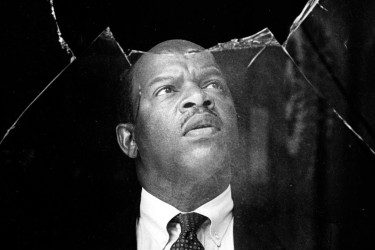In Macon, Ga., late in 1848, Ellen Craft, an enslaved seamstress, and her husband, an accomplished cabinetmaker named William, watched with concern the worsening financial situation of Ellen’s owner, her half-sister. (They had the same father, but Ellen’s mother was his slave.) The couple had long planned an eventual escape: Now, the increased danger of being sold and separated made them more resolute. Before dawn one late December morning, they took action.
As Ms. Woo relates, the fair-skinned Ellen chopped her hair off short, pulling on a shirt, trousers and loose coat, adding “gentleman’s boots, thick soled and solid,” to appear taller. To look like “a sick, rich White young man,” she added “green-tinted glasses,” a “double-story” top hat and bandages to disguise her beardless face. William acted as her servant, in a fine new beaver hat and his usual clothing. With “as much as $150 . . . (more than $5,000 today)” saved from their work as artisans they set off to catch the train to Savannah, on a journey as risky and unpredictable as a trip to the moon.
Anyone who has read the subtitle (“An Epic Journey From Slavery to Freedom”) will already know that the Crafts made it not only to Savannah but to a new life outside of bondage. But the story is so richly dramatic, and Ms. Woo so skilled at spinning it out, that at times it’s a genuine nail-biter: Before the train even leaves Macon, the fugitives encountered no fewer than three people who might have recognized them. At Charleston, S.C., Ellen had to avoid signing an affidavit because she could not write; the cleverly planned sling on the young master’s poor arm got “him” off the hook.
Even after they crossed the Mason-Dixon line, and in the years that followed, the Crafts remained at risk, especially after the Fugitive Slave Act of 1850 required northern states to comply with slave-catchers. When they joined the charismatic former slave William Wells Brown in New England, telling their story at public meetings, they worried about causing danger to family in Georgia. Ellen had to be particularly cautious: After her genuinely transgressive role—a hat trick of pretending to be white, a man, and in a position of power over her own husband—she was careful to recede from the foreground. She was particularly distressed by being advertised as “the white slave”: Her passing as white had been a matter of necessity but Ms. Woo points out that Ellen always identified as black and disliked the erasure of what the author calls her “complex ethnicity.”



































